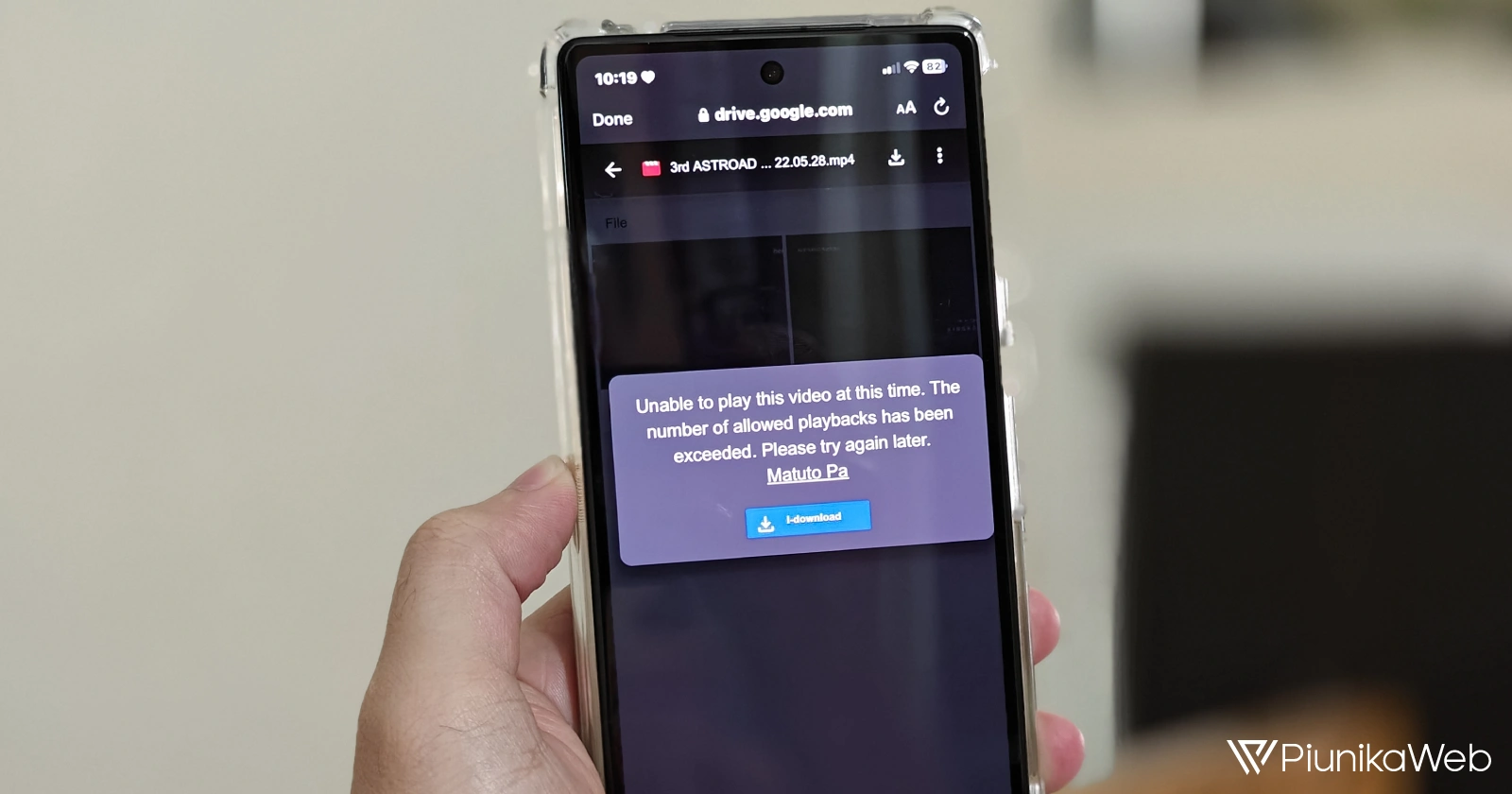Google’s Pixel 8 and Pixel 8 Pro are the first Android phones to be getting seven OS updates officially. This means that Pixel 8 series users will be able to enjoy the latest features and security patches until 2030, which is a huge advantage over other devices that typically get two, three or even four years of OS updates. Granted Android phones were always lagging behind iPhones in terms of software support, the announcement got everyone talking about it. But not in a way you might assume. Most articles and posts by tech enthusiasts pointed out two major issues with the seven years of OS updates commitment from Google: its credibility and its necessity.
The first concern was raised because Google has a nack of axing products and services on a whim. I mean, there’s a whole website dedicated to tracking stuff Google binned. The second issue here is something that I can personally relate with. As someone who switches to a newer smartphone every couple of years, it’s hard to see myself using a phone with dated hardware for seven years.
For instance, I’ve been using the Pixel 7a and OnePlus 11, but when I pulled out my old Galaxy S9, released roughly six years ago, I immediately noticed how under powered the device felt. The battery life was laughable too. Also, don’t get me started about the overheating issues that I noticed within 10 minutes of scrolling on X. All in all, I can’t see myself ever going back to using that flagship phone from 2018. And with the pace at which tech is involving, including AI, I doubt I’ll be using the Pixel 7a or the OnePlus 11 seven years down the line.
This dilemma, however, brings a question to mind. What if Google could also make its Pixel phones modular, allowing users to swap out components and upgrade their hardware as well?
Why consider a modular Pixel phone?
Modular phones are not a new concept. Google itself experimented with Project Ara, a platform that aimed to create a fully customizable smartphone with interchangeable modules for the camera, battery, display, processor, and more. However, the project was shelved in 2016, reportedly due to technical and logistical challenges. Since then, only a few companies have attempted to create modular phones, such as Fairphone and Shift, but none of them have achieved mainstream success.
If any company could bring modular phones to the masses, it would be Google. In fact, back in 2019, rumors were spreading about the possibility of Google’s Pixel 4 being a modular phone. But what if Google actually goes ahead with the idea of a modular smartphone? The company currently has a market cap of $1.79 trillion and has seen a boost in revenue in Q4 2023. So I feel like Google won’t have much trouble trying to bring back modular phones with its Pixel branding, if it tried.
A modular Pixel phone would address both of the major concerns that people have about Google’s seven years of OS updates commitment. First, it would give users the flexibility to upgrade their hardware without having to buy a whole new phone. This would help to extend the lifespan of Pixel phones and reduce electronic waste. Second, it would give Google a more credible reason to commit to seven years of OS updates. After all, if users can upgrade their hardware, they’re more likely to stick with their Pixel phone for the long haul.
These days, most new smartphones launch with minor improvements over the previous model. Therefore, it hardly makes sense to drop close to, or more than, $1,000 every year or even bi-yearly on a new phone with the latest specs. Instead, a modular Google Pixel phone would allow you to pick and choose the stuff that matters. Want better cameras? Buy the latest sensor. Want better performance? Buy the latest SoC. The list goes on…
Shortcoming of nonreplaceable hardware
One of the biggest concerns with using a smartphone for a long period of time is the degradation of its battery. To put things simply, the more charge cycles a battery runs through, the weaker it gets. And thus, over time, the phone will barely last half the duration as it did when you first unboxed it. Android Authority’s Hadlee Simons has a brilliant take on how just letting users replace the battery easily would make the 7 years of OS updates make sense. As I write this, the poll their article has around 7,659 votes and 61% agree that it would make sense having a removable battery. But how about we think beyond just batteries?
Imagine trying to compare the camera of the Pixel 3 with the new Pixel 8. While yes, day time shots might not have insane differences when comparing the two, things would soon change if you tried capturing in low light. Similarly, if you compare an Android flagship from 2018 – 2019 with a flagship from today, the performance difference would be staggering.
The Pixel 8 has a score of 1,017,631 on AnTuTu whereas the roughly 6 year old Pixel 3 scored around 284,546. With the recent push for AI in smartphones, it’s more than likely we’ll need increasingly more powerful chipsets to handle whatever’s thrown at them. So unless you’re fine with just receiving a fresh coat of paint in the name of “updates,” having the option to swap out the processor to the latest and greatest would be heavenly. You see where this is going? The same would apply for displays, biometric scanners, storage, and connectivity options too.

In a recent interview, OnePlus’ President, Kinder Liu, also called Samsung’s and Google’s 7 OS update policy a gimmick in a way, when asked about its 4 OS updates and 5 years of security updates policy. They argued that focusing solely on update length ignores the hardware’s ability to keep up. Liu also used an odd metaphor of a “sandwich”: offering 7 years of good filling (software) is pointless if the bread (hardware) is moldy after 4. As odd as the “sandwich” reference may be, Liu does make a good point.
This solidifies the fact that just offering OS updates that will most likely bring the bare minimum for a long time isn’t doing anyone any favors. Thus, a modular Pixel phone would solve the problem where the “bread” gets “moldy”.
The challenges
Of course, there are some challenges that Google would need to overcome in order to make modular Pixel phones a reality. First, the company would need to develop a new set of standards for modular phones. Second, it would need to convince other companies to make modules that are compatible with Pixel phones. And third, it would need to make sure that modular Pixel phones are affordable enough for consumers to buy.
A couple of concerns would be protection against liquids and dust along with the thickness of the devices. I personally wouldn’t mind a slightly thicker device. Moreover, as long as little exposure to liquids, dust or even lint won’t damage the device, I’m all in.
Despite these challenges, I believe that modular Pixel phones could be a worthwhile endeavor for Google. If the company can pull it off, it could revolutionize the smartphone industry and make Pixel phones the most sustainable and future-proof devices on the market.
With enough effort and innovation, Google could overcome the challenges and make modular Pixel phones a reality. This would be a major coup for the company and would help to solidify its position as a leader in the sustainable smartphone industry.
Final thoughts
You’ve stuck with me this far, so I know you must have thoughts on this! However, let’s be realistic – while this idea is certainly fun to explore, it’s more of a dream scenario than something Google would likely undertake in the near future. Nevertheless, if someone from Google manages to get their eye balls on this, I do hope they at least consider the possibility. Heck, if not Pixel phones, an entirely new line up of modular phones would be just as good, even if they don’t have all the bells and whistles that Google offers its Pixel users. That said, I’d love to hear your thoughts on this.
Featured image: Generated with MS Copilot Designer

![[Opinion] Google's 7-year software support paired with a modular Pixel phone could be a powerful combo [Opinion] Google's 7-year software support paired with a modular Pixel phone could be a powerful combo](https://piunikaweb.com/wp-content/uploads/2024/02/modular-smartphone.webp)

